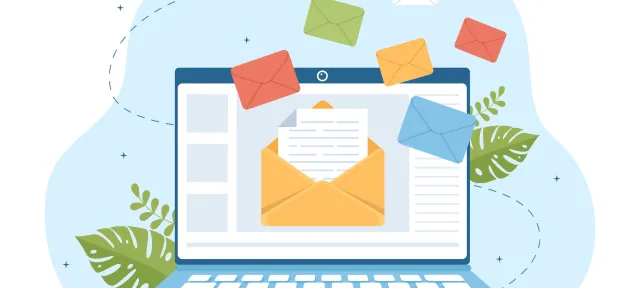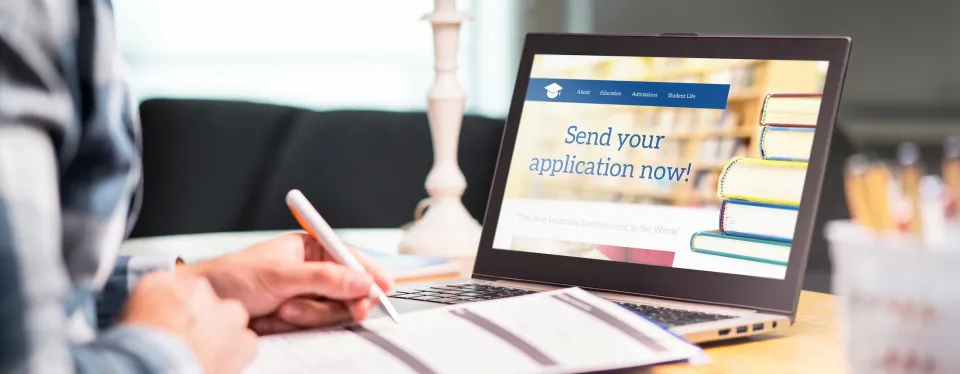For something so commonplace, emails can still be a tricky form of communication. While it’s easy to write a bad email, the good ones do take some thoughtful consideration, especially when it matters the most. Imagine having the best interview ever, only to learn later that it was the poorly crafted follow-up that cost you the job.
You’ve got the experience, you’ll nail the interview and you’ll solidify your chances with a follow-up email the hiring committee won’t soon forget.
Here's how you get there.
The Checklist of Email Etiquette
When starting any communication, keep the three Cs in mind: be considerate, concise and courteous. Then utilize basic email etiquette to demonstrate to the interviewer that you are professional and friendly—traits that are always favorable in a candidate.
- Follow up and be thankful. The easiest way to fail at a follow-up email is by not writing one. The interviewer took time out of their day to meet with you and it is kind to acknowledge that with genuine appreciation. Sending a note of thanks also allows you to add more of your personality in what is usually a formal setting.
- Restate your strengths and qualifications. Tell the interviewer what you enjoyed about your discussion, if there are projects that excite you, or reiterate why you feel that your qualifications would be a good fit. An interviewer might see many candidates for one position and having a highlight reel to associate with you will help you stand out from the crowd.
- Provide further context. If the interviewer explicitly asks for more context about your work experience, such as additional writing samples or links to relevant work, be sure to attach the cleanest, easiest-to-open version of the document to avoid technical glitches. Remember to be deliberate with what you send; the interviewer doesn’t want to sift through several documents to find what is relevant.
- Ask direct questions about next steps, if applicable. Ask what the next steps in the interview process are or when a decision is expected, and then leave it at that. As tempting as it is to reach out again, you want to keep your name in the “Hire” category, not as someone who comes across as annoying or potentially problematic.
- Double-check your work. Make sure your email is not too casual in tone, filled with typos, doesn’t offer relevant information or is too long. Proofread before you hit send to make sure the impression you want to give matches what the interviewer will read.
Dos and Don’ts of Sending a Follow-up Email
The way we write is an extension of our personality, and when talking with a prospective employer, you want to make sure you are consistently presenting yourself in the best light.
DO:
- Follow-up within 24 hours of an interview. Keep the tone friendly and the message concise and be sure to thank them for their time. If you are sending additional information, such as links and references, take the time to ensure that what you are sending is in pristine condition, with no typos, broken links or formatting issues.
- Have an easy way for interviewers to find out more about you, such as a personal website, online portfolio or an updated LinkedIn profile. It lets the interviewer get a more complete picture of you as a person and is an easy way to further highlight your abilities.
- Clean up your social media. Be sure your online presence is cleaned up and appropriate; interviewers don’t want to stumble upon your personal blog and photos on social media that could be construed as inappropriate or problematic.
DON’T:
- Send jokes, memes, GIFs, or emojis—they are too casual and could be construed as inappropriate in this setting. Even if the interviewer seemed like they’d enjoy your humor, the purpose of the follow-up email is to show your worthiness as an employee. It is not an audition for friendship.
- Go overboard. The interviewer is busy and repeatedly sending follow-up emails or phone calls will look less like an eager candidate and more like an annoyance. Respect their time and their process by being restrained in your communication.
Looking for more help with job interviewing skills? Contact Herzing University’s Career Center to check out interview simulations, resume evaluation tools, and more resources designed specifically with your next job search in mind.
Learn More About Our Career Programs
* Bureau of Labor Statistics (BLS), U.S. Department of Labor, Occupational Employment and Wage Statistics 2023 / Occupational Outlook Handbook 2022. BLS estimates do not represent entry-level wages and/or salaries. Multiple factors, including prior experience, age, geography market in which you want to work and degree field, will affect career outcomes and earnings. Herzing neither represents that its graduates will earn the average salaries calculated by BLS for a particular job nor guarantees that graduation from its program will result in a job, promotion, salary increase or other career growth.





